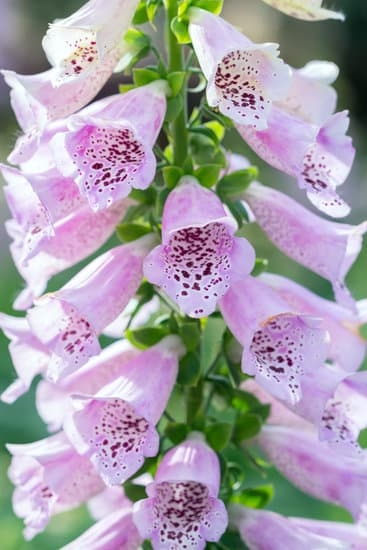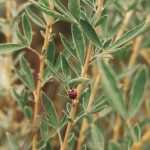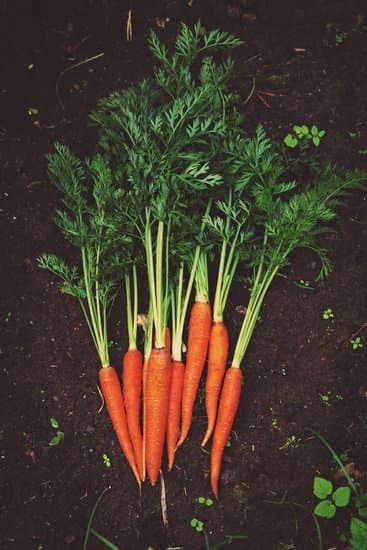Introduction
Glyphosate is a herbicide that has long been used to kill weeds, but recently has come under the spotlight for its potential health risks. Studies have linked glyphosate exposure to cancer, reproductive issues and birth defects in both humans and animals. This has led many gardeners and consumers to be concerned about how this chemical may be present in their gardening liquids, including products such as Roundup. In fact, there are other household liquid products that contain glyphosate, not just Roundup.
Therefore, it is essential for gardeners to be aware of which other liquids contain glyphosate so they can take the necessary precautions when using them in the garden. Glyphosate can be found in various weed killers and fertilizers including: Ortho Groundclear, Bayer Advanced All-in-One Weed Killer Concentrate, Spectracide Immunox Multi-Purpose Fungicide & Leaf Spot Control, Bonide Weed Beater Ultra Weed & Grass Killer Concentrate 2, Scotts EZ Seed Patch & Repair Sun & Shade, Miracle Gro Weed and Feed 3 Lawn Food and BioAdvanced All-in-One Weed Killer for Lawns.
It is important for gardeners to read the product labels of their gardening compounds very carefully since some products may appear safe but actually contain traces of glyphosate due to their active ingredients or those added as filler material. It’s also important to pay attention to usage instructions since incorrect written application instructions can have serious consequences on human and animal health exposured to this toxic herbicide. Finally it is always best practice to wear proper protective clothing when using any product containing glyphosate as an active ingredient.
Overview of Glyphosate
Glyphosate is a widely used chemical herbicide, originally developed by Monsanto and now licenced for use by many different manufacturers. It kills weeds, grasses, annuals and aquatic plants. By interfering with the way enzymes are produced in target organisms, it blocks the growth of targeted plants. Glyphosate works by being absorbed through the leaves on targeted plants, then translocating to other parts of the plant where vital enzymes and hormones cannot function properly. This inhibits plant growth.
Besides its wide-ranging use in lawn care, it can also be found in proprietary brand gardening chemicals such as Roundup® or Ortho® Weed B Gon®MAX Plus Crabgrass Control Concentrate. These chemicals contain carefully controlled concentrations of glyphosate which are safe for use around gardens and food crops. This makes them invaluable tools for controlling weeds without introducing potentially toxic chemicals into an environment.
Common Glyphosate Brands
Glyphosate is a common active ingredient in home and garden liquids, often used as an herbicide or weed killer. It is a common agrochemical that can be found in numerous products on the shelves of most stores. Common glyphosate brands include Roundup, KleenUp, Bonus S, Rodeo Aquatic Herbicide, Havoc, Conserve SC, Glyfos and many more. While available in many places across the world, there are some geographical areas where the use of these chemicals has been restricted due to environmental concerns. In Europe for instance, the substance has been heavily regulated since 2009 and its use has been banned in some countries. In Australia glyphosate has also been regularly questioned by environmental groups for its health impacts but it remains widely used there as well.
Other Sources of Glyphosate
Glycols are chemicals used as solvents, antifreeze and wetting agents. They have been found to contain trace amounts of glyphosate when used as an active ingredient in glyphosate-based herbicides. Glycols can be identified by checking the ingredients list on any product containing them. Some common glycols used in gardening liquids that may contain glyphosate include ethylene glycol, propylene glycol and butylenes glycol.
Humectants are a type of ingredient that is often added to gardening liquids to help retain moisture content in plants and soils. Examples of humectants used in gardening liquids include polyols, monosaccharides, glycerol and sorbitol, all of which may contain trace amounts of glyphosate if they were produced using a glyphosate-based herbicide. Other humectants not often found in garden product labels such as vegetable oils have also been known to contain trace amounts of glyphosate when produced from certain crops grown with a glyphosate-based herbicide.
Alternative Gardening Products
There are many alternative gardening products available for consumers that do not contain any glyphosate. This includes natural, organic solutions such as compost-derived products and solutions such as citric acid. Compost is incredibly beneficial for the soil, promoting health and biodiversity. By adding compost to the soil, it adds micronutrients, produces helpful bacteria and fungi that promote greater health of plants, and prevents diseases from appearing in the garden. Citric acid is a naturally-derived solution often used as an herbicide which breaks down harmful minerals like iron and manganese in the soil. It can also be used to control weeds as it adjusts the pH balance of the soil.
Other solutions that may be suitable for gardening purposes include natural plant oils like clove oil and garlic extractions, steam cleaning surfaces to eliminate pests, manual weeding processes, or installing physical obstacles (such as netting) around gardens where pests could come into play. These tools are more environmentally friendly than glyphosate-based solutions because they are 100% natural with no chemicals added.
Conclusion
It is important to note that not all gardening liquids contain glyphosate. For readers who are interested in learning more about other gardening liquids that may have glyphosate, they can refer to the product label or contact their local garden store for further information. Additionally, there are a variety of websites containing helpful resources and articles outlining products which contain this active ingredient. Lastly, it is worth considering that certain agricultural formulations of glyphosate may include additional chemicals or surfactants which can increase the toxicity of the product and therefore readers should exercise caution when using such products.

Welcome to my gardening blog! I am passionate about plants and enjoy sharing my knowledge and experiences with others. In this blog, I will write about everything related to gardening, from tips on how to get started to updates on my own garden projects.





